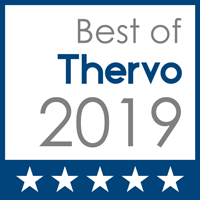Other Treatments Provided
- Generalized Anxiety Disorder
- Post Traumatic Stress-Disorder (PTSD)
- Obsessive-Compulsive Disorder
- Social Anxiety Disorder
- Depression
- Seasonal Affective Disorder (SAD)
- Adjustment Disorders
- Substance Use Disorders
- Dependency
- Body Dysmorphic Disorder
- Sexual Abuse/Trauma
- EMOTIONAL SUPPORT ANIMALS (ESA)
- Teen Stuff
Sorting out the OCDs may seem daunting. However, there are some differentiating factors that will help you determine which, if either, you or your loved one suffers with.
OBSESSIVE COMPULSIVE DISORDER (OCD) is an anxiety disorder.
The symptoms of OCD are as follows:
1 Intrusive, recurrent, and unwanted thoughts, images, or impulses that distress and/or interfere with your daily routine, job performance, or social relationships.
2 Failed attempts to ignore or control these thoughts or impulses or neutralize them with other thoughts and actions.
3 Recognizing that the obsessive thoughts are a product of your own mind.
4 Engaging in repetitive and/or excessive mental or behavioral actions to neutralize or prevent discomfort or some dreaded outcome.
5 Recognizing that the repetitive behaviors are excessive and unreasonable.
Some signs that your personality quirks may just cross the line into OCD:
- Dwelling on relationships
- Counting
- Checking
- Over-zealous cleaning
- Hand-washing
- Seeking reassurance
- Unwanted sexual thoughts
- Fears of violence
- Organization
- Hating your looks
None of these behaviors listed above in and of themselves constitute OCD. OCD enters in when want to becomes have to.
OBSESSIVE COMPULSIVE PERSONALITY DISORDER (OCPD) is a personality disorder.
Preoccupation with orderliness, perfectionism, mental interpersonal control….at the expense of flexibility, openness and efficiency.
Difficulty deciding which tasks take priority or what is the best way of doing some particular task…therefore, the task never gets started.
Prone to becoming upset or angry in situations in which they are not able to maintain control of their physical or interpersonal environment, although anger may not be expressed directly.
Excessively devoted to work and productivity to the exclusion of leisure activities and friendships (not accounted for by obvious economic necessity)
Is overconscientious, scrupulous, and inflexible about matters of morality, ethics, or values (not accounted for by cultural or religious identification)
Is unable to discard worn out or worthless objects even when they have no sentimental value
Is reluctant to delegate tasks or to work with others unless they submit to exactly his/her way of doing things
Adopts a miserly spending style toward both self and others; money is viewed as something to be hoarded for future catastrophes
Shows significant rigidity and stubbornness.
Express affection in a highly controlled or stilted fashion; may be uncomfortable in the presence of others who are emotionally expressive.
Their everyday relationships have a formal and serious quality and they may be stiff in situations in which others would smile and be happy.
They carefully hold themselves back until they are sure that whatever they say will be perfect.
They may be preoccupied with logic and intellect.
How to differentiate OCD from OCPD:
#1: Insight
People with OCD usually know that their thoughts (obsessions) are irrational (“It’s raining, so my cat will die”). Individuals with OCPD believe their extraordinary standards and work ethic are not just reasonable, but the only route to getting things accomplished.
#2: Distress
In OCD, the obsessions and compulsions are stressful and unpleasant. For instance, feeling convinced you just drove over someone and circling back dozens of times to check for a body turns one’s stomach into knots. By contrast, for those with OCPD, the rigid schedules and rules of the condition are often comforting and feel right.
#3: Guilt
In OCD, individuals can, but not always, feel guilty about asking others to conform to their rituals (for example, “I know it’s a hassle to take off your shoes and put on these socks whenever you come inside, but I really, really need you to do that. My apologies.”) Alternatively, those with OCPD think others should conform to their ways and firmly believe it’s the best and only way of doing things.
#4: Anxiety
With OCD, compulsions - the behaviors/actions someone with OCD can’t resist doing, like checking, counting, or washing - are performed to reduce anxiety. For example, a person with OCD might review her schedule for the day over and over again because she’s terrified she’s forgotten to include all her appointments. By contrast, someone with OCPD might make and review a detailed schedule in order to be comprehensive and efficient. Anxiety isn’t part of the picture. As you can see, the motive behind the action/behavior is quite different.
#5: Time
Obsessive Compulsive Disorder uses up at least an hour a day. Part of an OCD diagnosis can be the fact that the obsessions, plus the compulsions that neutralize the obsessions, suck up a lot of time. OCPD, on the other hand, is more tightly interwoven to one’s personality. Rather than being an activity unto itself, the perfectionism and control of OCPD is more of a trait, not a time suck.
It is important to seek information from a trained professional to help you with the diagnosis and treatment of OCD & OCPD.
To discuss how Dr. Susie can help you, feel free to contact her personally at 954.294.7036 or via email at drsusie@me.com.
Address
Geneva Building:
1919 NE 45th Street,
Fort Lauderdale, FL 33308
(Suite 218)
- Telephone:
- 954.294.7036




